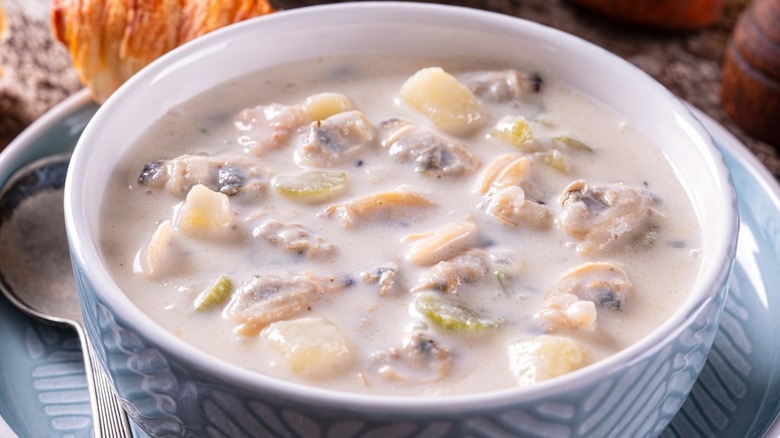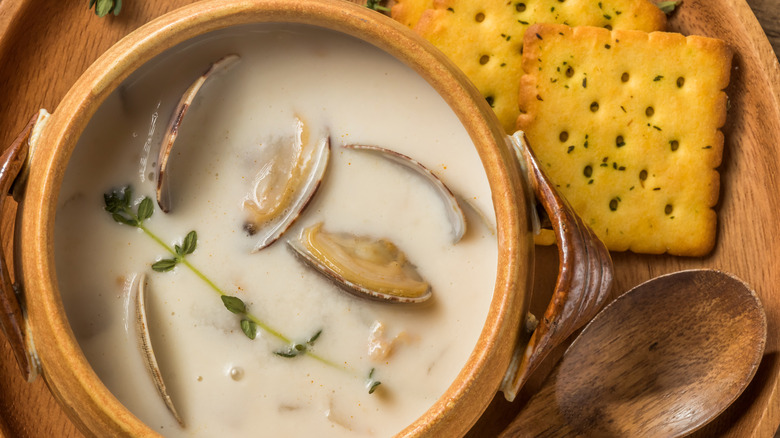Read This Before Freezing Clam Chowder
Clam chowder has been around since the New England Pilgrims, USA Today's 10 Best reports. And while it's a staple for those who live in the northeastern part of the United States and has many East Coast variations, it also has a fan base that stretches well beyond those boundaries. What makes chowder, chowder? According to Merriam-Webster.com — the definitive definer — the dish is "a soup or stew of seafood (such as clams or fish) usually made with milk or tomatoes, salt pork, onions, and other vegetables (such as potatoes)."
Clam chowder is quite a hearty and comforting dish. In fact, from time to time, you may have even made more of it than you can reasonably consume and have wondered, "Can I freeze leftover clam chowder?" You are not alone in your wondering. There are plenty of pioneering cooks out there who have done the hands-on research for us and the answer, according to the blog The Fork Bite, is yes, you can freeze your clam chowder. However, before you find that freezer-safe container to store your soup in, there are a few pieces of guidance you need to know before placing your leftovers in cold storage for a future meal.
Some clam chowder ingredients don't freeze well
Per DIYS.com, it's best to freeze your clam chowder the same day you make it, or the following day at the latest. Freezing your chowder when it's freshest is key because some of the ingredients in this dish are not necessarily "optimal" for freezing. And if you're making New England clam chowder, these ingredients include cream or milk.
The Smarter Homemaker blog notes that the biggest problem with freezing New England clam chowder is the cream or milk can curdle — and seemingly no one wants that. The blog goes on to describe how cream or milk and butter tend to separate when they are frozen, causing the chowder to lose flavor and texture. However, the writer also concedes that there's not really a way to avoid this hazard.
Additionally, The Fork Bite points out that potato in frozen clam chowder "ends up like cubes of mash and is quite unpleasant to eat." The Smarter Homemaker concurs, explaining that when you cook potatoes or carrots in a soup and freeze it, these water-dense vegetables "will become mushy" when you thaw the chowder. The ways to avoid this problem completely are omitting these vegetables, according to The Fork Bite, or to not add them to the original chowder. Instead, it's best to wait until thawing before incorporating them as you go. If you do freeze your clam chowder, it can last four to six months.

